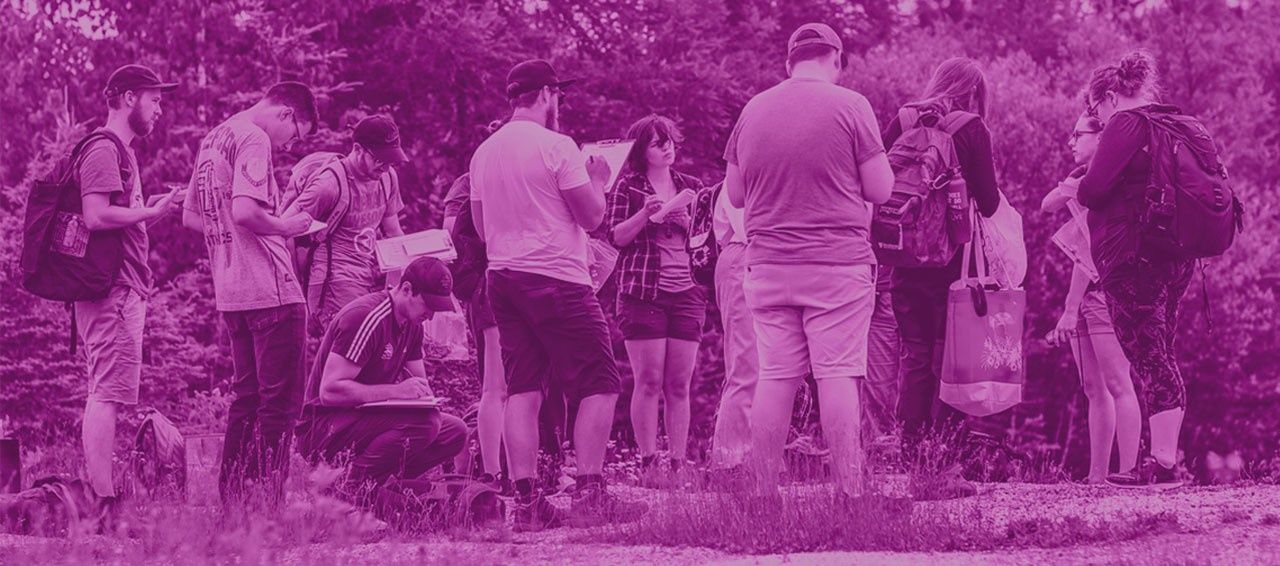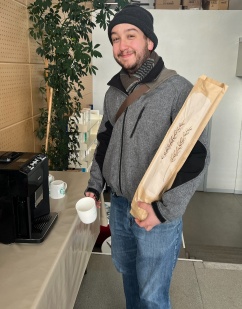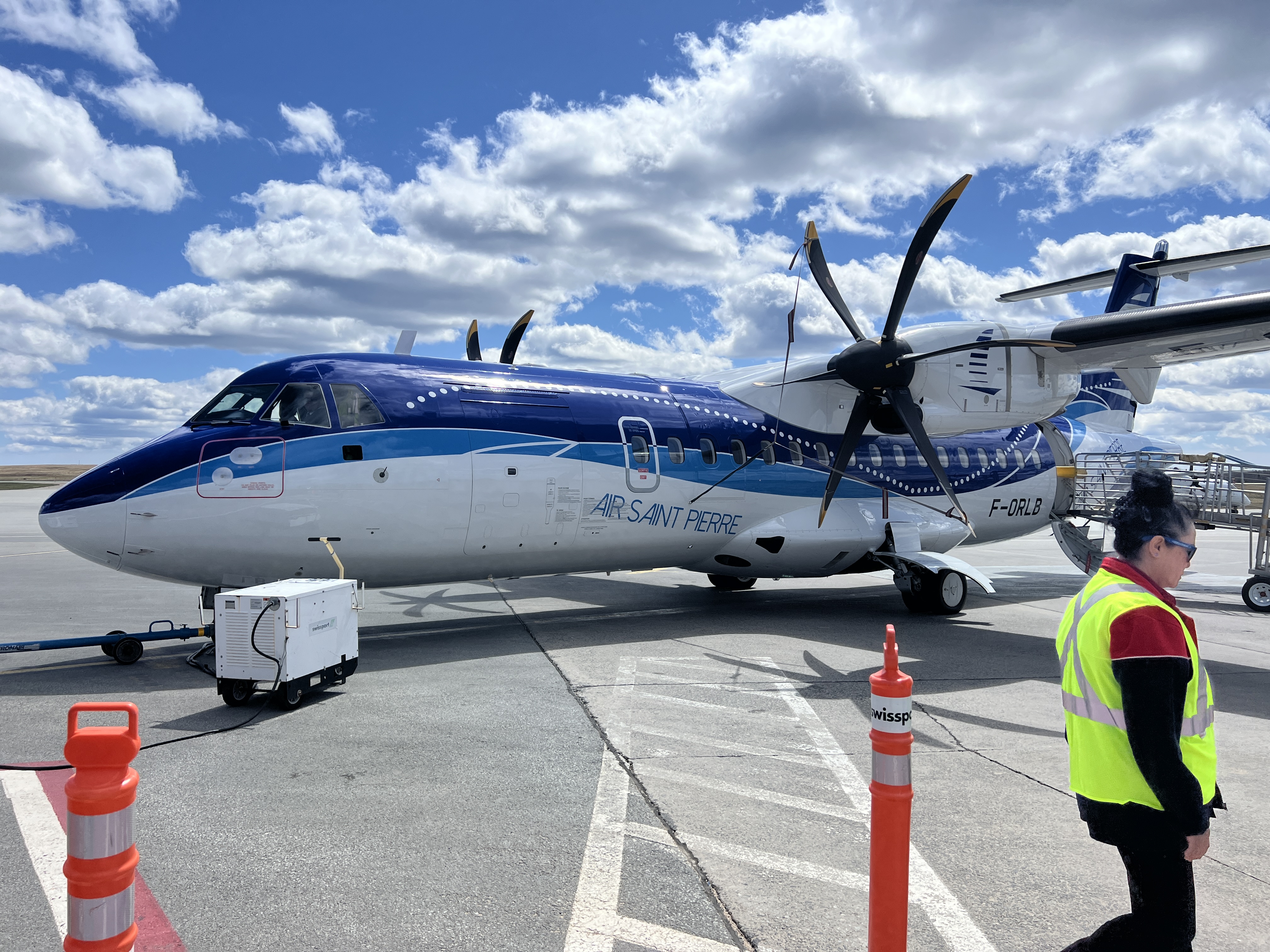Marcus Puddu: Living ‚Äúa whole other mode de vie‚ÄĚ just a short plane ride away!
THE FASS STUDENT EXPERIENCE: Studying abroad in Saint-Pierre and Miquelon
A group of six students who study French in the Faculty of Arts and Social Sciences (FASS) at –¬ľ”∆¬ŃýļŌ≤ Ņ™ĹĪ÷Ī≤• spent three weeks in spring 2024 on a study abroad field school program in Saint-Pierre and Miquelon where they completed a course on language and culture in the French-speaking world!
This program, based at , a dedicated language training centre, is supervised by a –¬ľ”∆¬ŃýļŌ≤ Ņ™ĹĪ÷Ī≤• professor who accompanies the group. The program is open to all students who have an intermediate level of French.
This intensive three-week immersion programme in the French Territorial Collectivity of Saint-Pierre and Miquelon offers students the opportunity to stay with host families, attend daily classes, and participate in sociocultural activities and excursions. Successful completion of the program earns the students six university credits in French.
Students interested in this study abroad course can find more information at this link.
The students who participated in the spring 2024 program were accompanied by Dr. Christina Brassard, Assistant Professor in Dal’s French department. One of the student participants, Marcus Puddu, a University of King’s College student who is completing a Bachelor of Arts with Double Major in French and Canadian Studies in the Faculty of Arts and Social Sciences, provided the following about his experience studying abroad in Saint-Pierre and Miquelon.
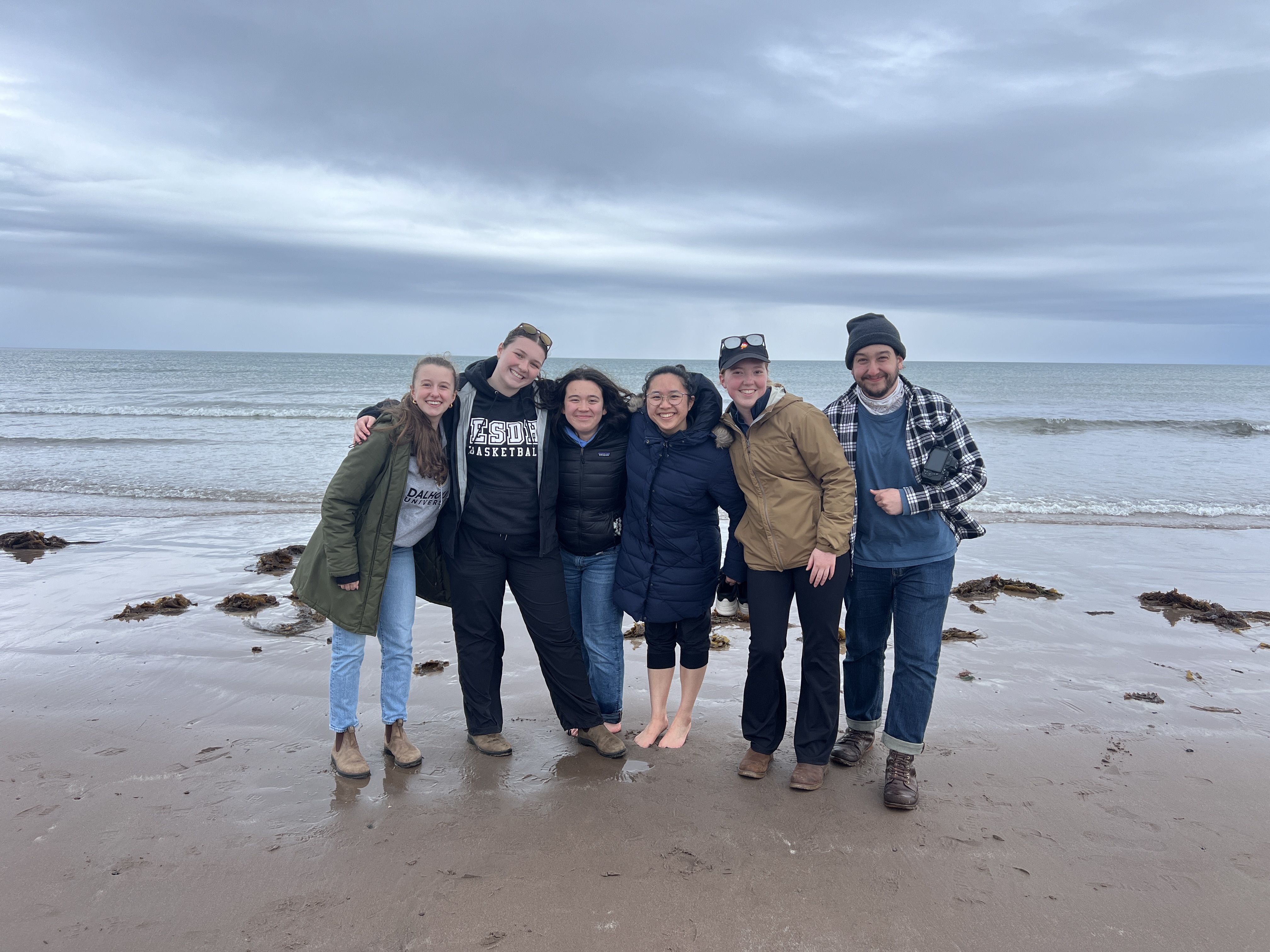
Living ‚Äúa whole other mode de vie‚ÄĚ just a short plane ride away!
By Marcus Puddu
What can I say of Saint-Pierre and Miquelon?
The warmth of the people there gleams through the foggy Atlantic. And oh, was it ever foggy! Gloomy on the worst days, but that just made the days of sun all the sweeter. Even when the weather was not in our favour, there was a certain something that added to the atmosphere. You‚Äôre only an hour away from Halifax, where the sun is bursting over the city and yet somehow, you‚Äôre a season or two behind. This distinct climate helps distinguish that you are stepping into another world; a culture distinct from both the rest of North America and from continental France (the ‚ÄėMetropole‚Äô). That social warmth replaces chimneys of old, and modernity and traditions blend vibrantly into a tapestry of different heritages and cultures within the petit archipel.
I was there only briefly: three weeks. Having flown to Saint-Pierre with only vague ideas of what to expect, I returned to Halifax with a permanent affection for it. It would be easy to go there expecting to step into France, or into a French version of Newfoundland, or into something between the two; however, even then you are surprised. There, I had an internship with SPM Tourism, where I learned that they call it ‚ÄėFrance like nowhere else‚Äô and for good reason. There, one lives surrounded by mountains and sea, with brightly coloured homes typical of the Maritimes ‚ÄĒ to the point where, yes, for a second, you might think yourself in Newfoundland. But just a moment later, you‚Äôll smell fresh-baked baguettes for under a euro, you‚Äôll see the ‚Äėmetro‚Äô visiting from France in the latest Parisian fashion, you‚Äôll hear an accent unlike that of mainland France, Quebec, Acadie, or anywhere else, and you‚Äôll wonder: ‚ÄėWhere exactly am I?‚Äô Then, with a sip of the best and cheapest coffee this side of the Atlantic, between contented sips of that nectar and an unforgettable pastry, you‚Äôll know you‚Äôve arrived.
Learning French at –¬ľ”∆¬ŃýļŌ≤ Ņ™ĹĪ÷Ī≤•, or anywhere in Canada, it‚Äôs easy to slip into English once you‚Äôre done classes for the day. Not so, in Saint-Pierre and Miquelon. Although you might hear the occasional Quebecois, Acadian, or Newfoundland accent, it‚Äôs far less likely that you‚Äôll be able to find yourself slipping into English (at least, it would be an exception). Not that that was allowed here, of course ‚ÄĒ we were there on full immersion. Some folks did try to speak English with us, and some of them spoke multiple other languages as it‚Äôs common for Saint-Pierrais and Miquelonnais to travel to Europe for their university studies, as there is no local university.
For me, this trip was not just another step in building up my ‚ÄėFrench brain,‚Äô it was the opening-up of a whole other world and culture. Visiting Quebec, I learned that ‚Äėthe Francophonie is a vast country,‚Äô but visiting Saint-Pierre made me better understand what that actually means. From social norms to the external pressures that affect one‚Äôs life, it‚Äôs a fundamentally different experience. We have certain expectations here in Canada regarding electricity, water, and food availability, which cannot work in Saint-Pierre. Everything is more sensitive and reliant on preparedness, from managing reservoirs in dry seasons to there being not enough sun and too much wind for conventional renewable power. There is also that fact that the entire island shuts down daily for lunch, Sundays, and sometimes at 6pm. Even groceries ‚ÄĒ although here we do face incredible costs ‚ÄĒ we are √† l‚Äôaise with an abundance of grocery stores and food options. We would be surprised if a certain food item was just impossible to find, depending on what day of the week you went to the store. There, a supply ship comes in once a week, and apart from some local agricultural products, that is everything. If you have dietary preferences or requirements, you must be prepared to plan around that supply ship and stock up for the week with those specific necessities. This timed supply chain and the unique tax situation there leads to very different personal financial decisions: for less than the price of a can of pop, some chocolate, and chips, you can buy a ‚ÄĒ quite ‚ÄĒ good bottle of wine, specialty cheese and a baguette. It was a whole other mode de vie; one which was a delight to take part in for a brief time.
I suspect this reads like an advertisement for Saint -Pierre. If so, we can blame my internship with SPM Tourism! But my appreciation for this experience runs deep and I’d love to return. What we learned there was not just French, it was another culture and a rich history including everything from a fishing collapse, bootlegging, and international economic policies, to Basque dancing, music, and generosity.
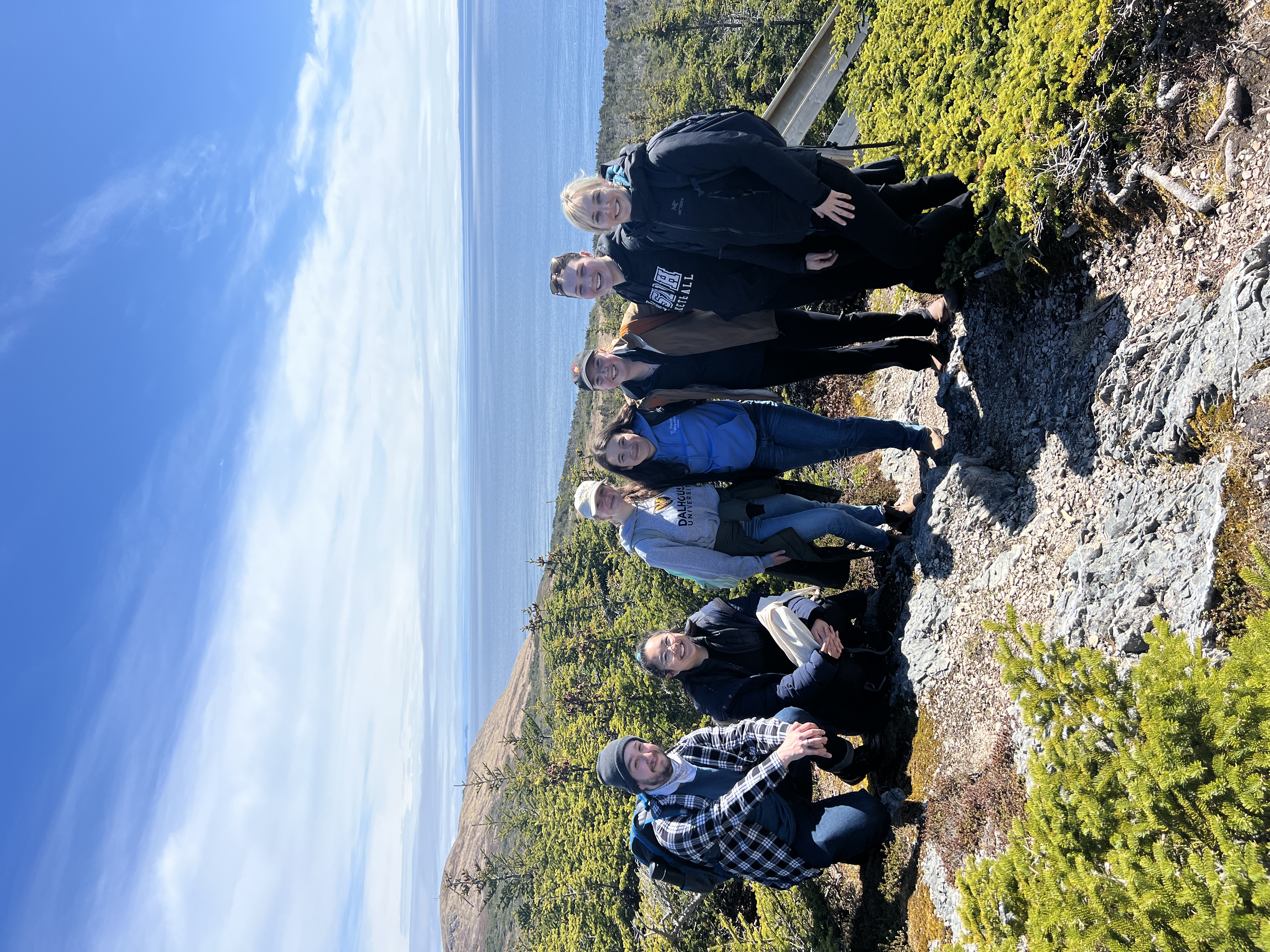 Students that participated in the spring 2024 Saint-Pierre and Miquelon study abroad program (left to right): Marcus Puddu, Parisana Low, Victoria Dubois, Teresa Martin, Meredith McCullum and Amy Randell, with –¬ľ”∆¬ŃýļŌ≤ Ņ™ĹĪ÷Ī≤• faculty member Dr. Christina Brassard.
Students that participated in the spring 2024 Saint-Pierre and Miquelon study abroad program (left to right): Marcus Puddu, Parisana Low, Victoria Dubois, Teresa Martin, Meredith McCullum and Amy Randell, with –¬ľ”∆¬ŃýļŌ≤ Ņ™ĹĪ÷Ī≤• faculty member Dr. Christina Brassard.
